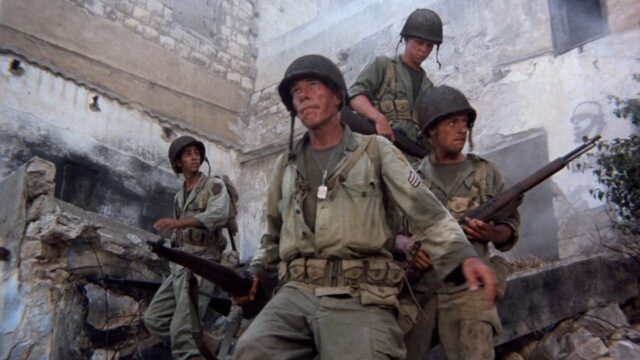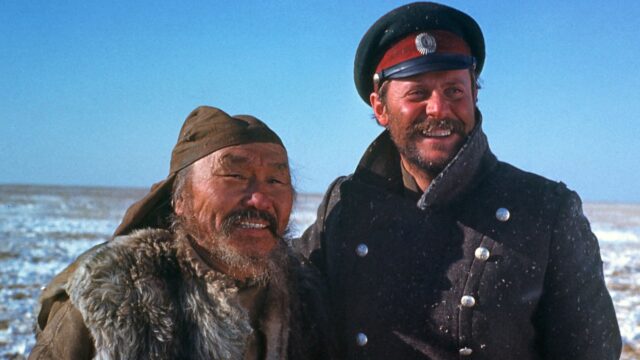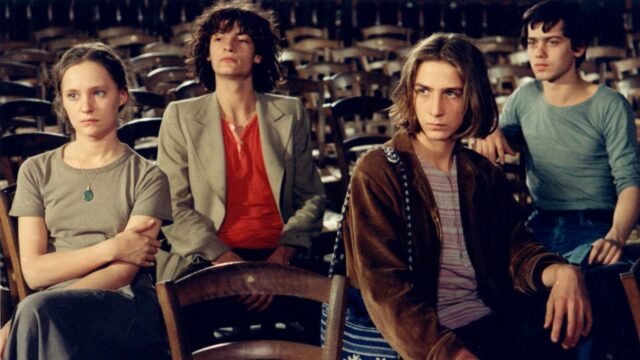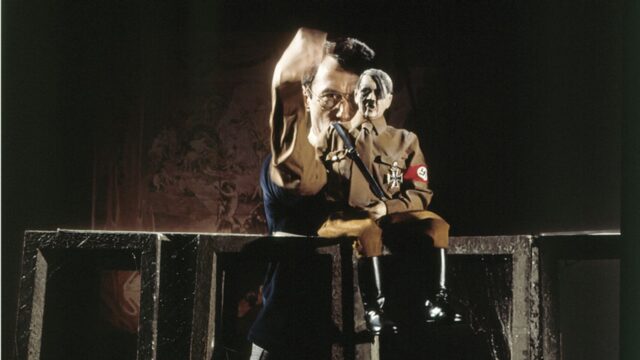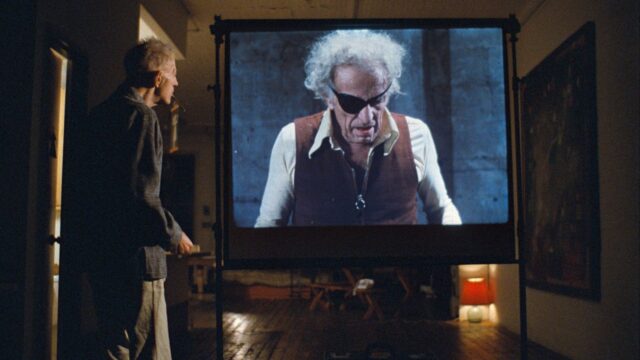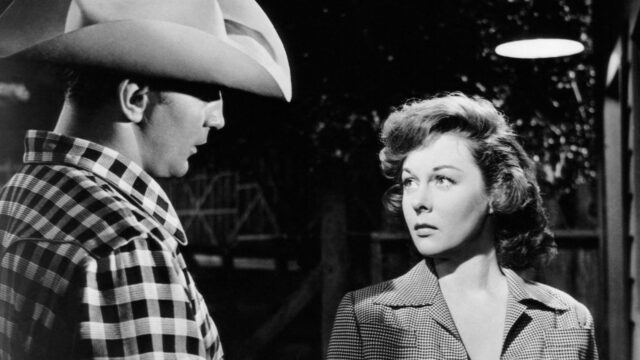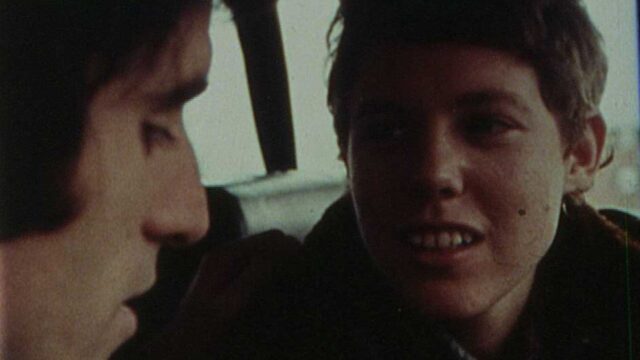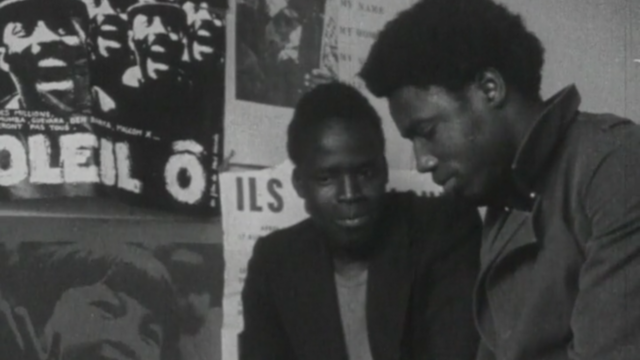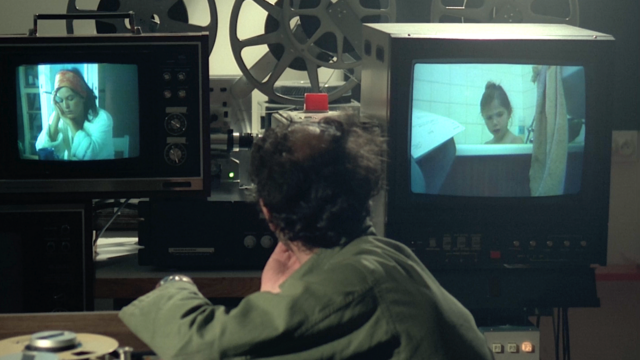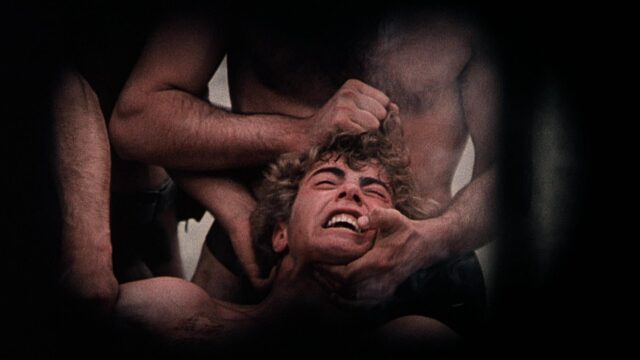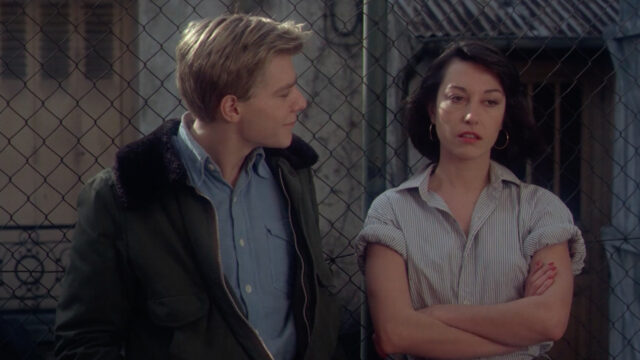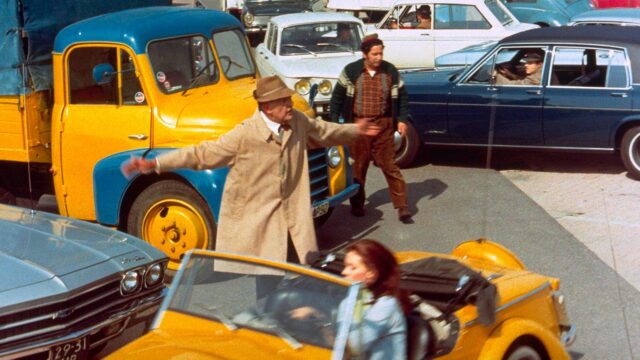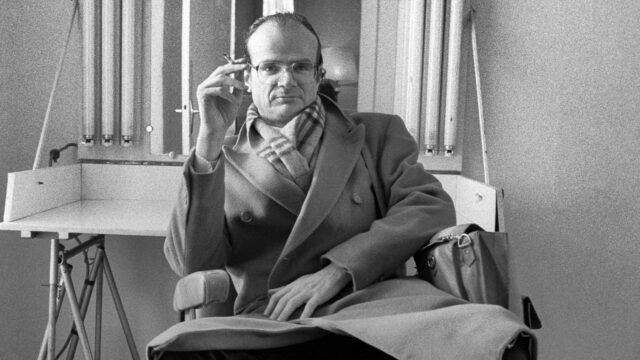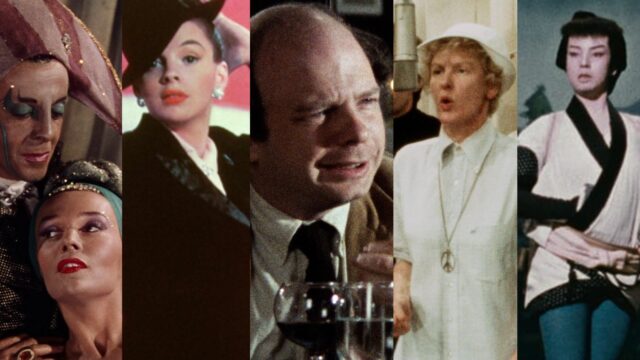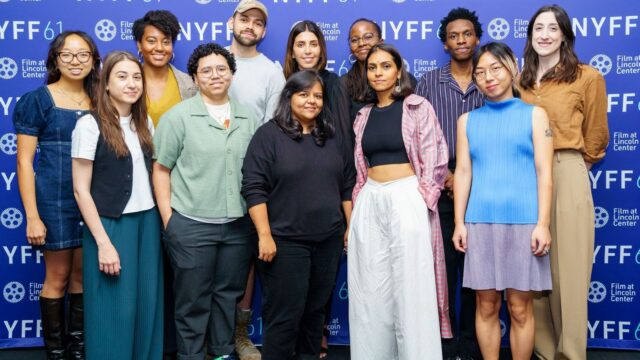Never Look Away: Serge Daney's Radical 1970s
The Devil, Probably; Dersu Uzala; Ceddo (Janus Films); The Lusty Men; and Number Two
Tickets
Film at Lincoln Center presents a series celebrating French film critic Serge Daney (1944–1992) and the films he championed in his book La Rampe, occasioned by its long-awaited English translation by Semiotext(e) under the title Footlights. The series will run from January 26 through February 4, 2024, and will feature a robust selection of works by master filmmakers, with many presented on 35mm or in digital restorations, accompanied by guest introductions.
In 1983, Daney released La Rampe, a collection of essays published in the seminal film magazine Cahiers du Cinéma over the course of the 1970s. In compiling some of his essential texts from a turbulent decade—one that saw filmmakers exploring new formal, political, and emotional territory as they wrestled with the comedown from the ebullient revolutionary spirit of the ’60s—Daney created a kind of collective self-portrait of a generation of film lovers who used cinema as a means not only to understand the world, but to change it.
To accompany the arrival of La Rampe in English, Film at Lincoln Center is pleased to offer a generous selection of the films that Daney discussed in its pages, presenting the films referenced above alongside classic titles by Jacques Tati, Ousmane Sembène, Akira Kurosawa, and Robert Bresson, epochal works such as Robert Kramer and John Douglas’s Milestones and Pier Paolo Pasolini’s Salò, or the 120 Days of Sodom, and a rare screening of Hans-Jürgen Syberberg’s epic Hitler, a Film from Germany, described by Susan Sontag as “a film altogether exceptional in its emotional expressiveness, its great visual beauty, its sincerity, its moral passion, its concern with contemplative values.”
With guest introductions from translator and series co-programmer Nicholas Elliott, French filmmaker-critic Axelle Ropert, and others, this series aims not only to bear witness to the catholic taste and acute intelligence of Daney, a thinker whom Jean-Luc Godard recognized as the last in a long critical tradition started by Denis Diderot, but to bring his thought into the present and ask what it means to those working and thinking in film today.
Organized by Nicholas Elliott and Madeline Whittle.
Acknowledgements:
Léa Baron (Institut Français – Cinémathèque Afrique), Jon Davies; Stéphane Delorme; Hedi El Kholti and Janique Vigier (Semiotext(e)); Audrey Evrard; Lili Hinstin; Steve Macfarlane, Adeline Monzier and Anne Takahashi (Unifrance); Shanny Peer; Jake Perlin; Axelle Ropert.
Sponsored by:
The Big Red One: The Reconstruction
Ceddo
Dersu Uzala
The Devil, Probably
From the Clouds to the Resistance
Here and Elsewhere
Histoires d’A
U.S. Premiere of Digital Restoration
Banned by the French government upon its release in 1973, Charles Belmont and Marielle Issartel’s landmark documentary about the struggle for abortion rights in France stands apart from the militant cinema of its era, allowing us to see its subjects not as illustrations of a trend, but as individuals with their singular problems and perspectives.Hitler, a Film from Germany
Lightning Over Water
4K Restoration | Introduction by cinematographer Ed Lachman
Wim Wenders launched Lightning Over Water to give his ailing mentor Nicholas Ray a last chance at making a movie—not only as a co-director, but as star and subject. The result is at once scrappy and tremendously moving, alternating between glorious 35mm shots of a vanished downtown Manhattan and all-too-raw video footage of the great auteur.The Lusty Men
Free entry with Lighting Over Water ticket!
Juxtaposing documentary footage of real rodeos with elegiac black-and-white studio photography, Nicholas Ray’s The Lusty Men is a poignant record—at once melancholy and exhilarating—of a nomadic life of trailer camps, craps games, post-show benders, and 10 seconds of death-defying glory on the back of a wild bull.Milestones
Nationality: Immigrant
Number Two
Salò, or the 120 Days of Sodom
Le Théâtre des Matières
Trafic
Free Talk: Serge Daney Now
Free and open to the public!
Film at Lincoln Center is pleased to convene a panel of critics and filmmakers to discuss the significance of Serge Daney’s thought today, with a particular emphasis on how his politically driven analysis and radical enthusiasms of the 1970s might speak to our contemporary moment.Tickets are now on sale! $17 for the General Public; $14 for Students, Seniors, and Persons with Disabilities; and $12 for FLC Members.
See more and save with a 3+ Film Package. $15 for the General Public; $12 for Students, Seniors, and Persons with Disabilities; and $10 for FLC Members. Discount automatically applied in cart after adding three (3) or more films.
Enjoy a special 2-for-1 double feature of Lightning Over Water and The Lusty Men on February 2! Present your Lighting Over Water ticket at the box office on Feb. 2 to redeem a free ticket for The Lusty Men. Subject to availability, no refunds for previously-purchased tickets.
Add dinner at Café Paradiso, located in FLC’s Elinor Bunin Munroe Film Center, with our $30 Dinner + Movie Combo.
Ticket Information
If logged in properly, you’ll be taken to the Calendar page after successfully entering your email and password. You should also see your email address appear at the top of the website. Once logged into your account:
– Select the first screening you wish to attend from any of film pages Calendar pages.
– After you’ve added all the tickets you wish to purchase to your cart, review your order and click “Check Out.”
– There is a 30-minute limit for your cart online. We recommend making more than one transaction if necessary so that you do not lose the tickets in your cart.
– Digital tickets are also accessible through your online account. After logging in, click Account in the upper left corner and then select Upcoming Events/Tickets.
In the event that advance tickets are no longer available, tickets will be issued on a standby basis. On the day of the screening or event, a standby line will form at the corresponding venue’s box office prior to showtime. Tickets may become available to the standby line on a first-come, first-served basis one (1) per customer.


